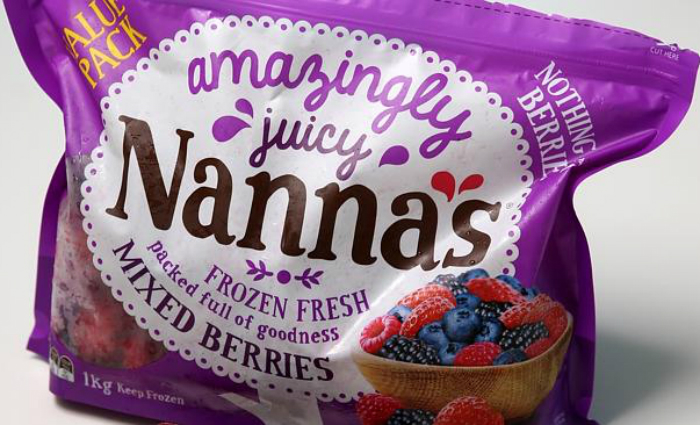
Label and packaging printers stand to gain work from new country-of-origin food labelling laws being rushed through in the wake of the Patties Foods berries contamination scare.
Federal Agriculture Minister Barnaby Joyce says the government will bring in ‘unambiguous and compulsory’ new laws, with a white paper on the proposed changes going before cabinet as soon as possible.
According to News Corp media outlets, the decision was made following an ‘unprecedented’ crisis meeting of health, agriculture and industry chiefs.
Joyce promises the new, simpler labelling system will clearly state the country where the produce was grown, so that consumers can tell ‘at a glance’, although there will be no bans on imported frozen products.
The news is likely good for packaging and label printers in Australia as labels will have to be bigger and more colourful.
[Related: More label printing news]
The government’s move follows Australian Independent Senator Nick Xenophon and The Greens reintroducing a labelling bill into parliament last week.
The bill by Xenophon and The Greens aims to place much tougher restrictions on the use of labels like “Australian Made”, which can currently be applied if half the cost of producing it was incurred in Australia.
As proposed, the bill would approve three categories of labels depending on where the food was grown, manufactured, and packaged.
Items that are wholly grown and processed in one country could be labelled ‘product of’ or ‘grown in’, while ‘manufactured in’ would be used to describe food that has been substantially transformed in a particular country.
The term ‘packaged in’ would describe goods that were highly processed but couldn’t claim to have been significantly processed or taken their ingredients from a particular country.
Xenophon says the Hepatitis A outbreak strengthens the need for ‘unambiguous country-of-origin labelling laws’.
“Currently you can call something ‘made in Australia’ so long as 51 per cent by value (including processing) was done in Australia – that’s nowhere near good enough for consumers to make an informed choice,” he says.
Previous incarnations of the bill years ago put the threshold at more than 90 per cent, but never made it to a vote.
A 2014 Choice survey found almost 90 per cent of Australians were unclear about where their food came from.
Mr Abbott said in an ABC radio interview that any changes to labelling would require a ‘balancing act’ that would not hurt businesses.
“Government has a role but business has a role too because the last thing we want to do is load on so much more regulation, so many more criteria, that the price goes through the roof,” he said.
“The last thing I want to do is put a whole lot of additional requirements on business that will make their life very, very difficult and which will raise unreasonably prices to consumers.”
Greens Leader Christine Milne has accused manufacturers and retailers of wanting to “hide from the Australian community information that people need in order to be able to buy products”.
“Every time that I move on country-of-origin labelling in Parliament you would have the big corporations, the supermarkets, the global food and beverage giants out there saying to the other parties ‘don’t pass it’,” she says.
Comment below to have your say on this story.
If you have a news story or tip-off, get in touch at editorial@sprinter.com.au.
Sign up to the Sprinter newsletter


